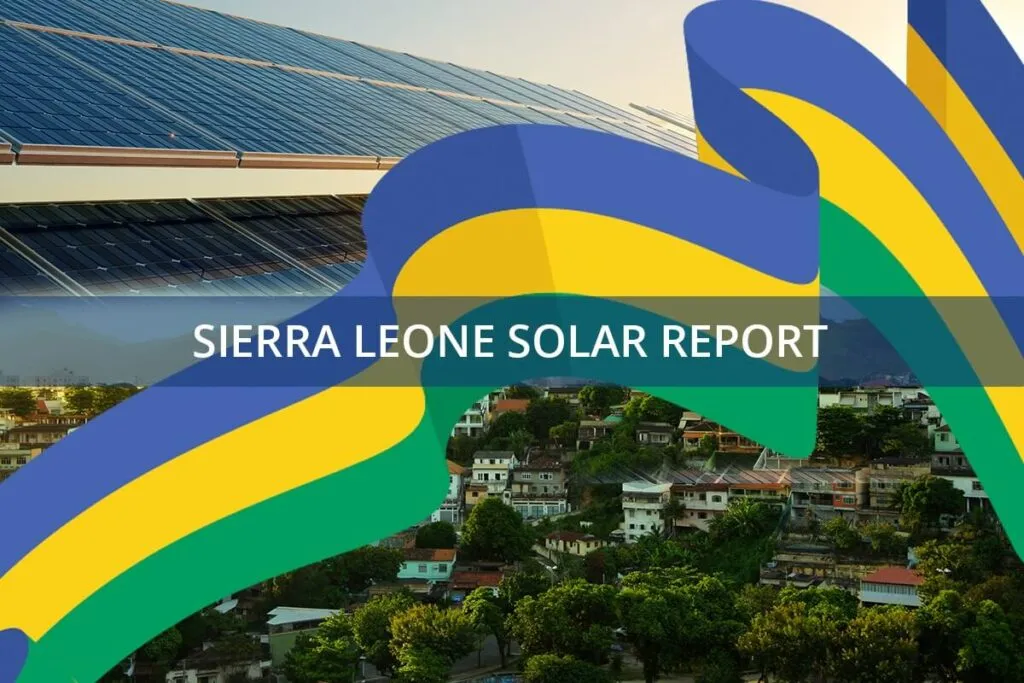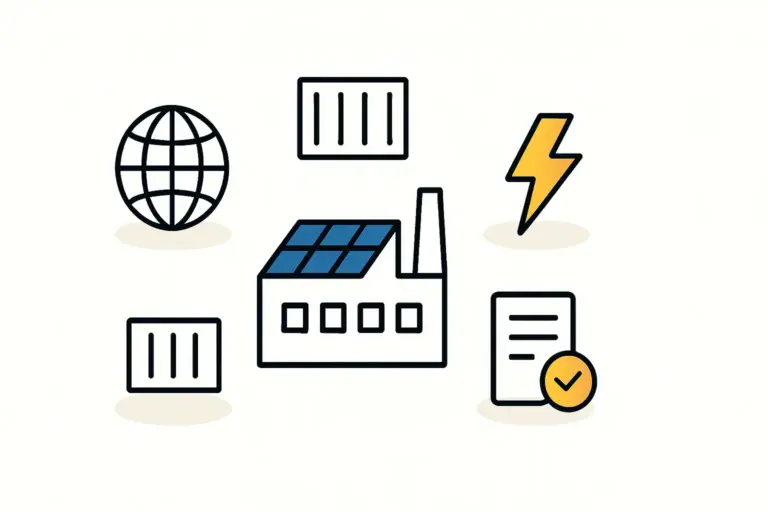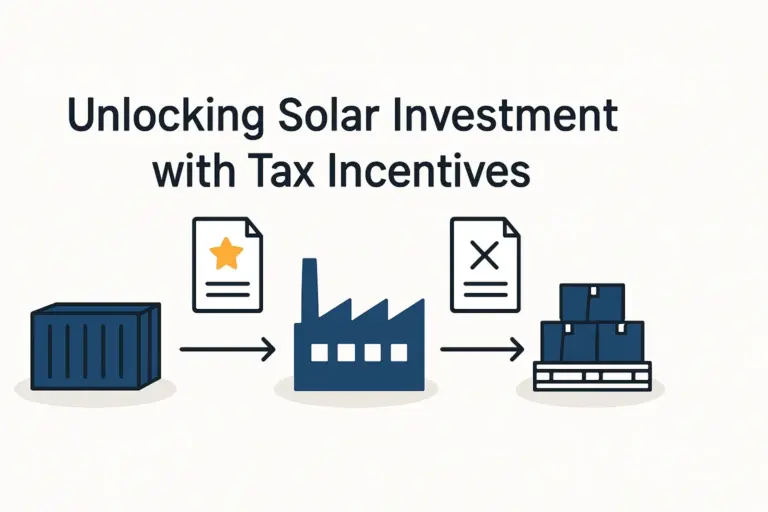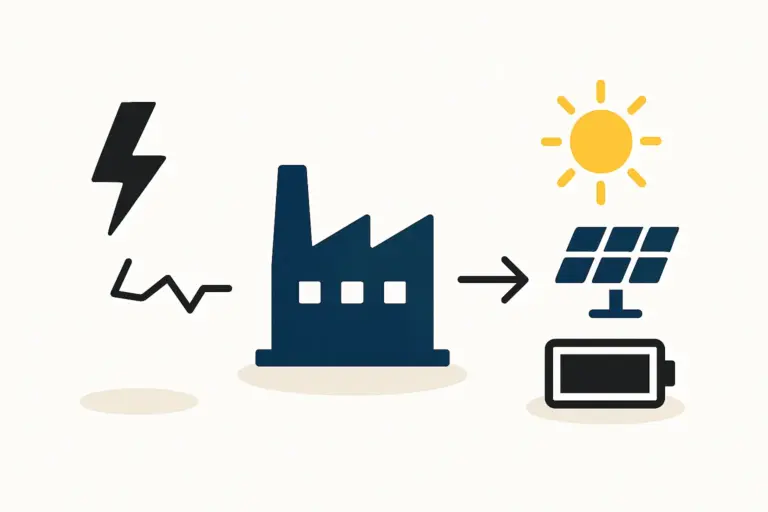For entrepreneurs exploring new frontiers, Sierra Leone’s energy landscape presents a stark contrast. The country receives 2,000 to 2,300 kilowatt-hours of solar irradiation per square meter annually, ranking it among regions with exceptional solar potential.
Yet, the national electricity access rate lingers around 16%, and the grid relies heavily on imported fossil fuels. This gap between potential and reality creates a significant opportunity for investors, particularly in the solar manufacturing sector.
Understandably, entering a new market—especially one in a post-conflict recovery phase—can seem daunting. The primary question for most business professionals isn’t about the opportunity itself, but about the process: ‘Where do I begin?’ In Sierra Leone, the answer lies with the Sierra Leone Investment and Export Promotion Agency (SLIEPA). This guide lays out a clear path for navigating the SLIEPA framework to establish a solar module production facility.
Understanding SLIEPA’s Role for Foreign Investors
The Government of Sierra Leone established SLIEPA as the central point of contact for foreign investors. The agency facilitates, promotes, and develops foreign direct investment (FDI). As a ‘one-stop shop,’ SLIEPA streamlines the complex processes of business registration, incentive applications, and regulatory compliance.
For an investor looking to set up a solar factory, SLIEPA acts as the principal facilitator. It provides guidance on legal requirements, connects investors with relevant ministries, and administers a package of incentives designed to attract strategic investments. This support is backed by the government’s National Renewable Energy Action Plan (NREAP), which aims to generate 85% of the country’s electricity from renewable sources by 2030 and signals strong political will for solar projects.
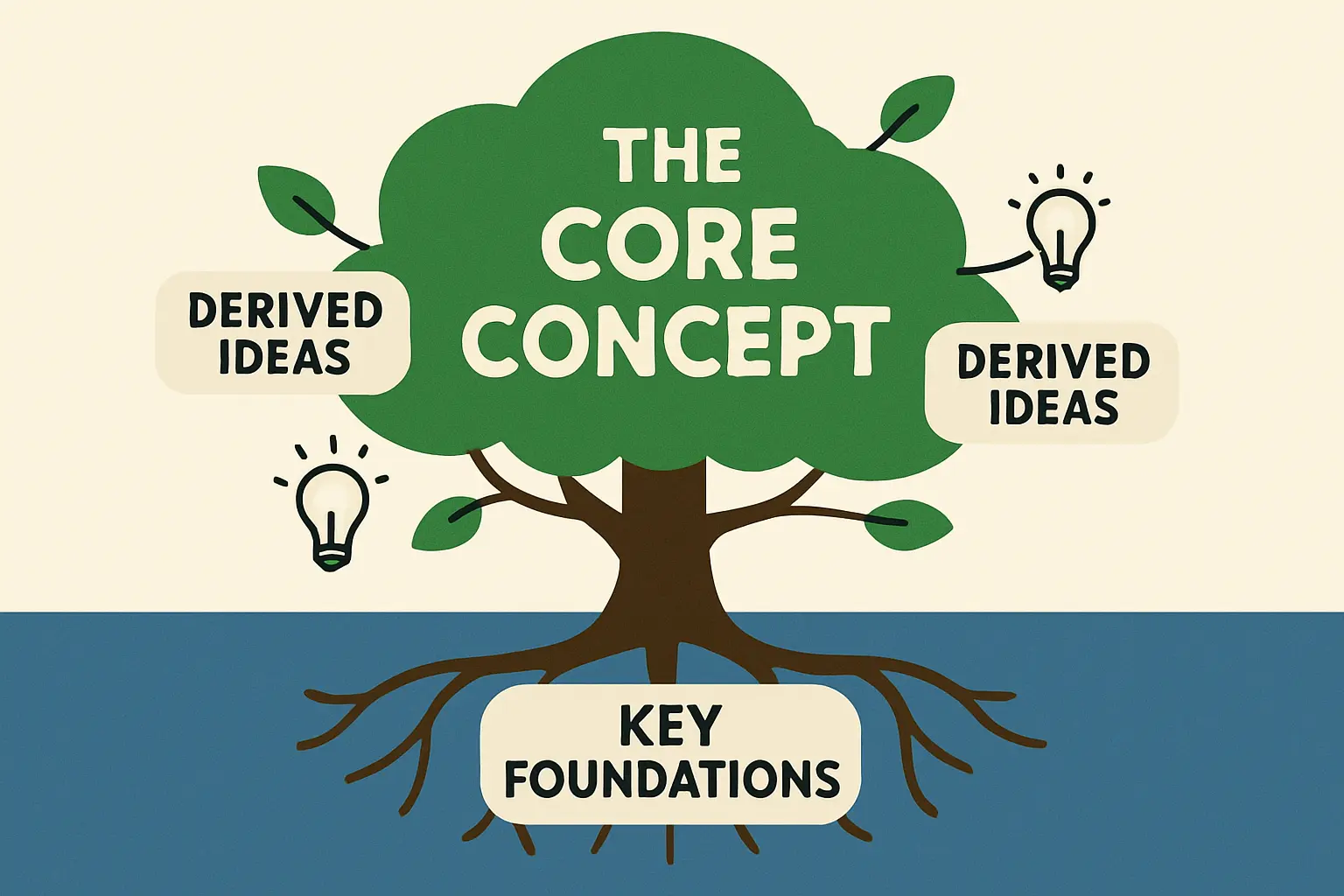
The Step-by-Step Registration Process
Engaging with SLIEPA is a structured, two-part process. The goal is to first establish a legal business entity in the country and then secure an Investment Certificate, which formally grants access to available incentives.
Step 1: Registration with the Corporate Affairs Commission (CAC)
Before applying for investment incentives, a company must be legally incorporated in Sierra Leone through the Corporate Affairs Commission (CAC). The process typically involves submitting essential incorporation documents, such as the memorandum and articles of association, along with details of the company directors and shareholders. SLIEPA offers guidance to ensure these documents are correctly prepared and submitted, helping to meet the government’s target of a 72-hour registration turnaround.
Step 2: Applying for the SLIEPA Investment Certificate
Once the company is legally registered, the next step is to apply for an Investment Certificate from SLIEPA. This crucial document unlocks the government’s incentive package. The application requires comprehensive documentation that proves the project’s viability and strategic importance.
Required documentation typically includes:
- A certificate of incorporation from the CAC.
- A detailed business plan outlining the project’s scope, financial projections, and operational strategy. A well-structured solar panel manufacturing business plan is essential for a successful application.
- Proof of funding for the proposed investment.
- An environmental impact assessment, where applicable.
Key Investment Incentives for Solar Manufacturing
The incentive package offered through SLIEPA is among the most competitive in the region, designed to significantly lower the initial financial burden and operational costs for new manufacturing ventures. These incentives are broadly categorized into fiscal and non-fiscal benefits.
Fiscal Incentives: The Financial Advantage
These direct financial benefits improve project profitability and accelerate the return on investment.
- Corporate Income Tax Holiday: For strategic sectors like manufacturing, investments exceeding $5 million may qualify for a corporate income tax holiday of up to 10 years. This is a substantial benefit, as the standard corporate tax rate is 25%. The specific duration depends on factors like the project’s location and the number of jobs it creates.
- Customs Duty Exemption: Approved projects receive a 100% exemption from customs and import duties on all plant, equipment, and machinery. For an investor setting up a turnkey solar manufacturing line, this exemption dramatically reduces the initial capital outlay. The Finance Act of 2023 further reinforces support for importing renewable energy equipment.
- Loss Carry-Forward: Businesses can carry forward 100% of their losses for up to five years, offsetting future profits and improving financial stability during the critical early years.
Understanding these incentives is crucial, as they can significantly improve a project’s financial model and overall viability.
Non-Fiscal Incentives: Mitigating Risk and Easing Operations
Beyond direct financial benefits, SLIEPA provides structural support that protects investments and simplifies day-to-day operations.
- Investment Guarantees: The government provides guarantees against expropriation, protecting an investor’s assets by law.
- Simplified Permits: SLIEPA helps obtain necessary secondary licenses and permits, such as work permits for expatriate staff and environmental clearances.
- Aftercare Services: The agency offers ongoing support after a business is established, helping investors resolve operational or bureaucratic challenges that may arise.

Why This Framework Matters for Solar Projects
The combination of Sierra Leone’s vast solar resources, pressing energy needs, and SLIEPA’s robust support framework creates a compelling case for investment in solar module manufacturing. The government has clearly identified renewable energy as a priority sector, meaning solar projects are well-positioned to receive maximum support.
By manufacturing modules locally, an investor not only addresses significant domestic and regional demand but also contributes to the country’s energy independence and economic development. A local factory can create skilled jobs, reduce reliance on imported panels, and support the government’s ambitious electrification goals. This alignment with national strategic objectives enhances the long-term security and viability of the investment.
Frequently Asked Questions (FAQ)
What is the minimum investment to qualify for major incentives?
While smaller investments are welcome, the most significant incentives, like the 10-year tax holiday, are generally reserved for investments exceeding $5 million.
Is it necessary to have a local partner in Sierra Leone?
No, a local partner is not a legal requirement. Foreign investors can own 100% of their business. However, partnering with a local entity can provide valuable insights into the domestic market and business landscape.
How does SLIEPA help with permits beyond the initial registration?
SLIEPA acts as a facilitator. While it does not issue all permits itself, its aftercare services team helps investors navigate the requirements of other government bodies, such as the Ministry of Labour for work permits or the Environmental Protection Agency for clearances.
What are the main challenges an investor might face?
Common challenges in emerging markets include navigating bureaucracy, ensuring reliable logistics for raw materials, and developing a skilled local workforce. SLIEPA’s framework helps mitigate bureaucratic hurdles, and customs exemptions ease logistics costs. To address workforce challenges, a strong local training program is key.
Preparing for a Successful Engagement with SLIEPA
Navigating the investment landscape in any new country requires diligent preparation. While the SLIEPA framework provides a clear and supportive path, the investor is responsible for presenting a robust and credible project. A comprehensive business plan, clear financial models, and a detailed understanding of the technical requirements for a solar module factory are essential for a smooth application process.
By leveraging the support structures SLIEPA offers and entering the process with thorough preparation, investors can confidently transform Sierra Leone’s solar potential into a viable and impactful manufacturing enterprise.


